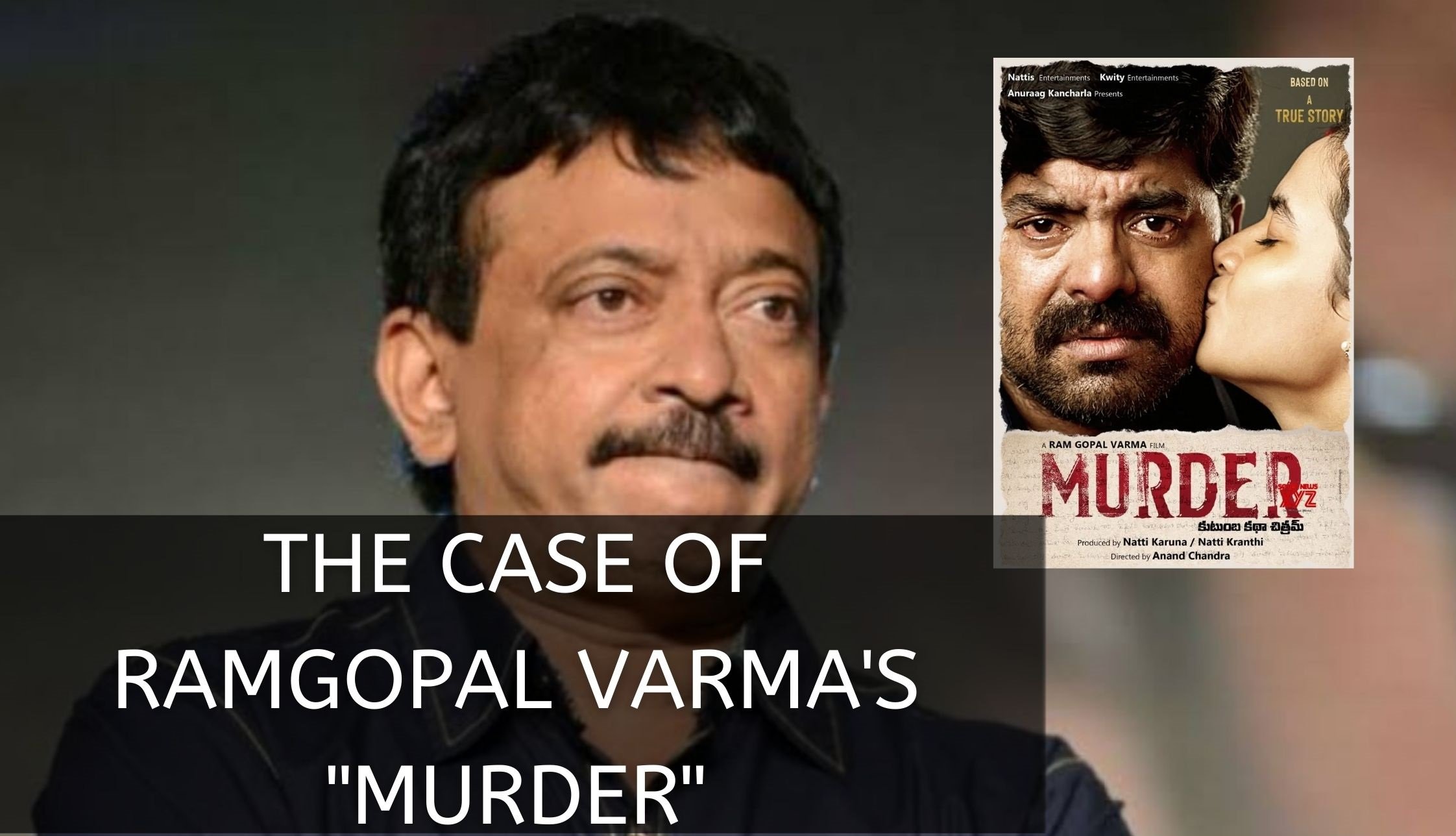THE CASE OF RAMGOPAL VARMA'S "MURDER"
There is no question that a person has a right to privacy concerning his or her family, marriage, procreation, motherhood and childbearing, and without his or her permission, no one can publish anything dealing with these issues. However, there is an exception to the said law.

There is no question that a person has a right to privacy concerning his or her family, marriage, procreation, motherhood and childbearing, and without his or her permission, no one can publish anything dealing with these issues. However, there is an exception to the said law, i.e. that if such publication is based on public records, including court records, any publication relating to these aspects will become uncontested. In other words, the right to privacy no longer exists if the matter becomes a matter of public record, and it becomes a valid topic for press and media comments, among others.
If the events that happened in the life of the respondent are now in the public domain, the appellants will not plead for any breach of the right to privacy by producing a film based on such events. This part of the matter was not considered by the Trial Court, i.e. material is now in the public domain when passing the order under appeal. So the order cannot be maintained.
It should not be denied that if any film is made by directly referring to her name, the name of her husband and the name of her father, much suffering and distress will be caused to the respondent, but because the appellants have promised through their Senior Counsel that they will not use the respondent's name, they would acknowledge their deceased husband or their deceased father in the film 'Murder'.
How Movies titles are protected under Trademark and Copyright Law, Watch this video -
The Telangana High Court gave the green signal for the release of Murder, a film by Ram Gopal Varma. A district court in Nalgonda had earlier imposed a stay on the film after the family of Amrutha Pranay approached the court. Murder is a film based on the caste killing that took place in Miryalguda, Telangana district, two years ago. A hired killer hacked Amrutha's husband, Pranay, a 24-year-old Dalit man, to death. The killer was employed by Maruthi Rao, his father-in-law, who had declined to marry his daughter. Ram Gopal Varma, however, approached the High Court with an appeal after the lower court granted a stay order.
The film Murder by RGV may be released on the condition that the film does not use the names of any of the victims or members of the family, including those of Amrutha, Pranay or Maruthi Rao. The lawyer of Ram Gopal Varma allegedly told the court that if any of the names were mentioned, they would make the necessary modifications accordingly.
Partner Copied from H**** & Dhamaal from ****, Copyright Right Law relating to Videos and Movies, To know more watch this video -
There is no question that a person has a right to privacy concerning his or her families, marriage, procreation, motherhood and childbearing, and without his or her permission, no one can publish anything dealing with these issues.
However, there is an exception to the said provision, i.e. that if such publishing is based on public documents, like court records, any publication relating to these things will become uncontested. In other words, the right to secrecy no longer applies if the matter becomes a matter of public record, and it becomes a legal target for news and media comments, among others. There are, of course, some exceptions to this exemption, which have not been affected.
If the events that happened in the life of the respondent are now in the public domain, the appellants will not plead for any breach of the right to privacy by producing a film based on such events. This part of the matter was not considered by the Trial Court, i.e. material is now in the public domain when passing the order under appeal. But the order can't be kept.
It should not be denied that if any film were made by directly referring to her name, the name of her husband and the name of her father, much suffering and distress will be caused to the respondent, but since the appellants have promised through their Senior Counsel that they will not use the respondent's name, they would recognise their deceased husband or their deceased father in the film 'Murder'.
The court, therefore, ruled that Civil Miscellaneous Appeal is permitted and the order is set aside subject to the condition that the appellants may not use or refer to the respondent, her deceased husband or even her deceased father by name or the captions listed on Twitter, social media, anywhere in the movie 'Murder' being created by them and even on social media, printing material (posters).
BY-ADITI GOEL












